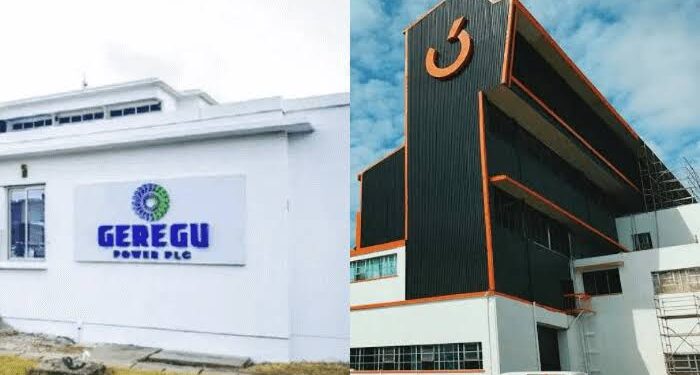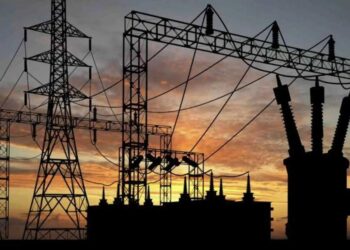The indebtedness of Geregu and Transcorp Power to the tune of combined N216 billion, to gas suppliers may deepen the persistent Nigeria’s power secror woes.
The debt burden from data, risks choking electricity generation and derailing ongoing sector reforms by the government.
According to BusinessDay report, the first quarter of 2025, total debts owed to gas suppliers by Nigeria’s two publicly listed power generation companies, Transcorp Power and Geregu Power, rose by N19.7 billion, increase from the N196.5 billion recorded at the close of 2024.
The rising debt burden reflects a combination of chronic underpayments by the Nigerian Bulk Electricity Trading Company (NBET) and broader inefficiencies across the power sector.
Diverging revenue performance
In the first quarter of 2025, Nigeria’s two listed power firms experienced contrasting financial performances. Geregu Power reported revenue of N31.8 billion, a sharp 37 percent decline compared to N50.4 billion in the same period of 2024.
In contrast, Transcorp Power recorded a robust 55 percent year-on-year increase in revenue, rising to N105.4 billion from N67.9 billion in Q1 2024.
The contrasting revenue trajectories translated directly into the bottom line. Geregu Power’s net income fell by 28 percent to N10.4 billion, compared to N14.5 billion in the same quarter of the previous year. Meanwhile, Transcorp Power delivered a strong profit performance, with net income rising by 62 percent to N32.6 billion, up from N20.1 billion in Q1 2024.
However, profitability does not necessarily equate to liquidity, and the balance sheets of both companies reveal deeper concerns.
Cash flow crunch continues
Despite its weaker earnings, Geregu Power maintains a relatively stronger liquidity position compared to Transcorp. By the end of Q1 2025, Geregu held N34.6 billion in cash reserves — a drop from N51.9 billion a year earlier — and reported a cash ratio of 0.21, down from 0.28 at the end of 2024. The decline in cash reserves and liquidity coverage reflects pressure from operating shortfalls and debt repayments.
This cash strain is primarily the result of a 55 percent drop in operating cash flow, as Geregu generates N12 billion from operations in Q1 2025, down from N26.9 billion in Q1 2024.
To shore up liquidity, the company raised N14 billion in new borrowings during the quarter. Despite this, Geregu managed to close the quarter with a Free Cash Flow of N9.1 billion, suggesting a conservative approach to capital expenditures amid rising debt.
With a debt-to-equity ratio of 5.3x, Geregu Power is heavily leveraged, with the company being in a risky situation. Considering that its debt to gas suppliers grew to N87.5 billion, from N80.9 billion in Q1 2025, the company is in a position that highlights the cash crunch battling the Nigerian power sector.
Transcorp Power, despite posting stronger profits, is in a far more precarious liquidity position. The company’s cash reserves stood at only N4.9 billion at the end of Q1 2025, translating to a cash ratio of 0.02, an alarmingly low figure that underscores severe liquidity stress.
Although its debt-to-equity ratio of 2.36x is significantly lower than Geregu’s, Transcorp’s debt servicing obligations remain heavy. The company took on a N23.5 billion loan during the quarter, yet spent N18.6 billion repaying existing borrowings, leaving it with little cash to support operational resilience. Net operating cash flow stood at N16.4 billion, reflecting some operational strength, but not enough to reverse its overall liquidity challenges.
Moreover, Transcorp’s gas debt rose steeply to N128.7 billion in Q1 2025.
Rising debts to Geregu, Transcorp
A central factor driving the liquidity crisis is the growing indebtedness of the Nigerian Bulk Electricity Trading Company (NBET) to the generation companies. NBET, which serves as an intermediary between power producers and distribution companies, has been unable to meet full payment obligations, largely due to low collections and losses across the value chain.
While Geregu Power received N23.56 billion in payments from NBET during the quarter, it was still insufficient to keep pace with receivables. The company’s trade receivables ballooned to N147.6 billion, up from N121.8 billion at the end of 2024.
Transcorp Power is facing an even greater burden, with trade receivables rising to N352.7 billion, representing a further N54.3 billion increase in customer debt within just three months.
This growing backlog of unpaid receivables reflects systemic dysfunction in the power sector’s financial architecture. With generation companies unable to collect from NBET, which itself cannot fully recover revenues from distribution companies, the entire sector is trapped in a self-reinforcing debt spiral.
What lies ahead?
As Nigeria’s electricity generation companies battle with deepening cash flow constraints and escalating debts to gas suppliers, the viability of the power sector is increasingly under threat.
In an April statement, Sani Bello, the Chairman of the Board of Trustees of the Association of Power Generation Companies (APGC), warned of an imminent shutdown of GenCos if there was no solution to the liquidity crisis.
He highlighted the payment waterfall system in the Nigerian Electric Supply Industry (NESI), noting that these GenCos were left to bear the brunt of the liquidity crisis in the NESI.
“The power generated by GenCos have continued to be consumed in full without corresponding full payment,” Sani noted.
Without urgent reforms to NESI financing methodology, better liquidity support for Gencos, and targeted interventions to improve collections at the distribution level, the debt crisis in the power sector could spiral into insolvency for key players.













